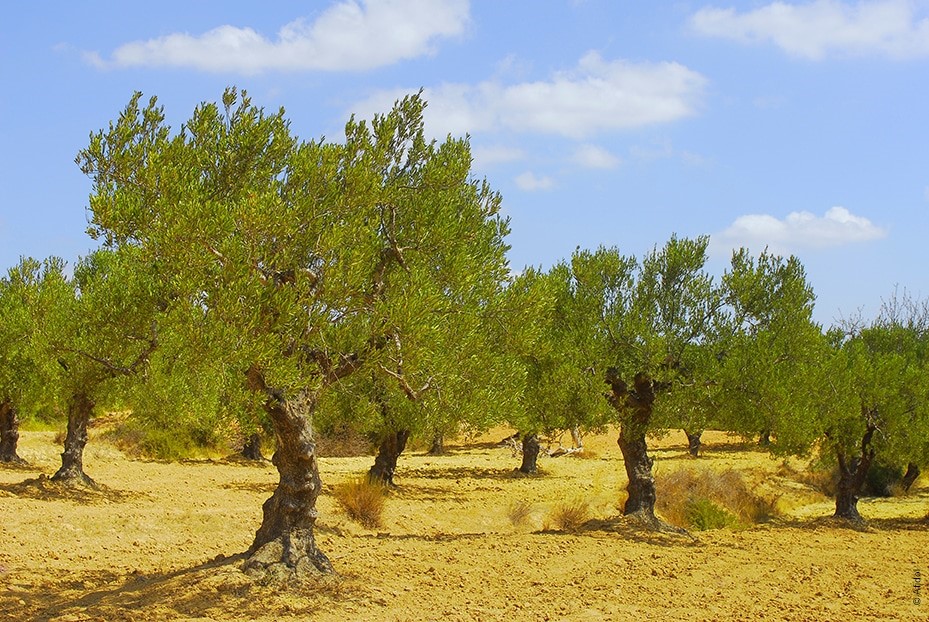Advancing Tunisia’s olive oil sector amid COVID-19

Tunisia has taken steps in recent years to increase the competitiveness and recognition of its olive oils – an important export for the country and source of income for over one million Tunisians.
In 2017, industry stakeholders came together to map out a common vision, strategy and action plan, with support from the European Bank for Reconstruction and Development (EBRD), the Food and Agriculture Organization of the United Nations (FAO) and the European Union.
This move was crucial for building public-private consensus on everything from raising productivity and quality standards to promoting certification and adding value – all crucial for entering new markets.
Tunisia has traditionally exported its olive oil in bulk. While some emerging small and medium businesses have successfully raised the quality of their oils – some Tunisian bottled oils are earning international acclaim, winning prizes in prestigious competitions – tapping into new high value-added markets remains a challenge for most companies.
In terms of production, the 2019/20 campaign broke records, with Tunisia producing an estimated 350,000 tonnes of olive oil – an increase of around 70,000 tonnes over the 2017/18 campaign.
But then the COVID-19 crisis hit. The pandemic disrupted agrifood supply chains around the world – from closed markets and movement restrictions, to reduced demand, logistic bottlenecks and weakened access to finance.
Even before the pandemic, there were serious market imbalances for Tunisian olive oil, with drops in both domestic and export prices. And, the country’s sector was at a crossroads – either continue to focus on producing oil in bulk or improve quality and create more added value.
According to FAO Economist Lisa Paglietti, the FAO/EBRD initiative has shown that even the smallest farmers can produce quality oils – becoming more competitive and better able to withstand economic shocks, including those brought on by COVID-19 – by adopting straightforward best practices.
“The long-term market vision foresees Tunisia playing an increasingly important role in bottled, value-added and organic extra virgin olive oil international markets,” she said.
Access to finance and markets
Iride Ceccacci, Principal, Agribusiness Advisory, EBRD, said that while immediate efforts need to focus on adapting the sector to be COVID-19 compliant before the next harvest season, “keeping the attention to two key areas – market access and consistency of product quality – could result in better access to finance and sector growth in the long run.”
Access to finance has been a longstanding problem for Tunisia’s small and medium olive oil enterprises, creating a barrier to growth. The COVID-19 crisis has exacerbated the issue. Banks are more cautious, and access to finance is already restricting operational capacity for some olive oil firms. It is crucial to diversify access to finance by introducing financial instruments like factoring to improve cash flow support, and to foster financial inclusion by allowing smaller companies to access credit.
Better access to high value markets requires greater attention to quality and food safety as well as effective promotion and marketing campaigns. On the food safety certification front, the EBRD and FAO are helping a group of emerging small and medium enterprise exporters in Tunisia gain high-level food safety certification like the British Retail Consortium, which focuses on improved food safety and quality management systems, product controls and traceability.
Thanks to these efforts, some companies are able to sell at higher margins. FAO and the EBRD want to showcase the good commercial and financial performance of these companies in order to raise the interest of local banks in financing the sector.
Promoting sector dialogue
Realizing the full potential of the Tunisian olive oil sector, especially amid COVID-19, calls for collaboration among sector stakeholders, the Government and international organizations.
Once movement restrictions are lifted, FAO, in cooperation with the Tunisian Confederation of Industry, Trade and Handicrafts (UTICA), plans to hold two conferences. The first one will deal with how policy can help the sector advance, while the second one will explore the role of technology in boosting competitiveness, sustainability, quality and recognition. FAO will also continue its support to build capacity and elaborate a 2020-2025 plan of investment in the olive oil sector.
The COVID-19 crisis has exposed serious vulnerabilities in the world’s agrifood systems. But this global pause also offers opportunities to innovate and reflect on how to make agrifood sectors stronger.
Given the importance of olive oil to Tunisia’s economy – and its excellent potential – FAO and the EBRD stand ready to help the Government and stakeholders seize this opportunity to strategically advance the sector, making it more sustainable, more inclusive and more resilient to future shocks.
